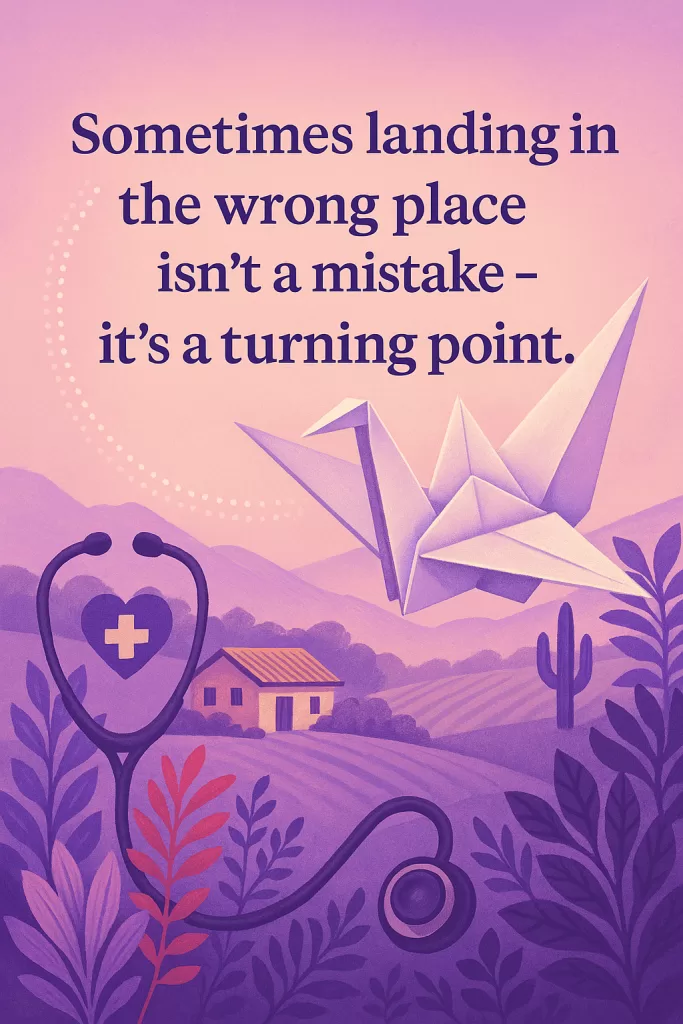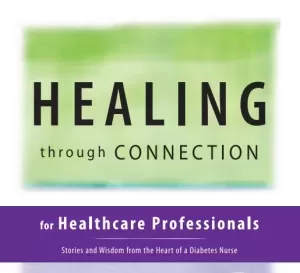
There are moments in life when you realize that even the wrong place can point you in the right direction. Looking back, I see now how one of the most emotionally wrenching chapters of my early nursing career became the impetus that guided me toward the work I was meant to do.
By my mid-twenties, I traded the heat of the San Fernando Valley for the ocean breezes of Venice Beach, California, and landed a position at UCLA Medical Center. My personal life was still bumpy, scarred by childhood wounds, unhealthy relationships, and a brush with death, but I was holding it together professionally. I had graduated nursing school, said goodbye to my job at Ying’s Kitchen, and proudly put on my white uniform and nursing cap each day. On the outside, I looked like I had it figured out. But inside, I felt like I was splitting in two.
You might know the feeling, where the version of you who shows up to work, strong and composed, is different from the one who goes home at night, aching for something more stable, more real, more whole. That was me.
My first day at UCLA placed me on the head, neck, and urology floor, and nothing could have prepared me for the heartbreak I would witness. Patients recovering from disfiguring cancer surgeries. People breathing through tracheostomies. The physical and emotional pain in those rooms was hard to hold. I often cried in my car after work, feeling helpless, overwhelmed, and unsure if I had what it took to stay in this profession.
And then came Midori
She had a “shrinking trachea,” the specialists said—something inoperable that would slowly close off her airway. One evening, we walked the hospital halls together, her IV pole trailing beside us. We paused at the window on the sixth floor, looking out over the glittering city. I put my arm around her small frame.
“I hope to go home and spend a few weeks with my family and friends,” she said quietly. Then, turning to me: “These last two days have been the most important days of my life. I am grateful that you have helped me through them.”
We stood in silence, tears spilling freely. In the reflection of that hospital window, I saw two women: one nearing the end of her life, and one just beginning to understand hers. I will never forget Midori—or the string of 100 colorful paper cranes her family had hung from the ceiling, symbols of courage, strength, and hope. That moment moved me so deeply, I wrote a short story called “The Paper Crane,” which was later published in the American Journal of Nursing.
Not every story was as heartbreaking. Some were filled with hope. I saw patients with diabetes transform after kidney transplants—skin glowing, energy restored, lives renewed. That sixth floor gave me a front-row seat to human resilience. And it sparked a realization: I didn’t just want to help people recover. I wanted to help them avoid suffering in the first place.
That’s when everything began to shift.
Sometimes, the “Wrong Place” Is Really a Doorway
The emotional toll of working on that unit was heavy—but it was also clarifying. It showed me what I could handle, what I needed to heal, and most importantly, what I felt called to do next. I wasn’t meant to stay in acute care. I was meant to move toward prevention, education, and empowering people to take charge of their health.
I applied to the Master’s in Public Health program at UCLA and was accepted in 1987. But before diving into graduate school, I knew I needed a break—and something inside me longed for an adventure, something that would shake me free from old patterns and reconnect me with purpose.
I reached out to David Werner, author of Where There Is No Doctor, who had started a clinic in rural Mexico. He told me, “Fly into Mazatlán, catch a bus to the town of Ajoya, and ask for Lupe. She’ll rent you a room for $6 a night, breakfast included.”
So I packed a suitcase full of medical supplies and hope—and boarded the plane.
An Invitation to You
Maybe you’ve landed in the “wrong place” too. A job that drains you. A relationship that confuses you. A season of life where you feel off-course, uncertain, or lost. I want to tell you: those moments aren’t wasted. They might just be redirecting you toward something more aligned, more meaningful, more you.
We don’t always recognize turning points when we’re living them. But trust that every tear, every doubt, every step forward—no matter how shaky—is shaping something vital.
Wherever you are on your path, keep going. And don’t be afraid to listen when your heart asks for something different.
Because sometimes, it’s the wrong place that helps you find your way home.

Coach Beverly is kicking off the launch of her first book, “Healing Through Connection for Health Care Professionals.”
This deeply personal book invites you into the pivotal moments that shaped her career and calling. She will post a new story each month so you can access the behind-the-scenes stories of struggle, growth, and hope that fueled her passion for transforming diabetes care.








